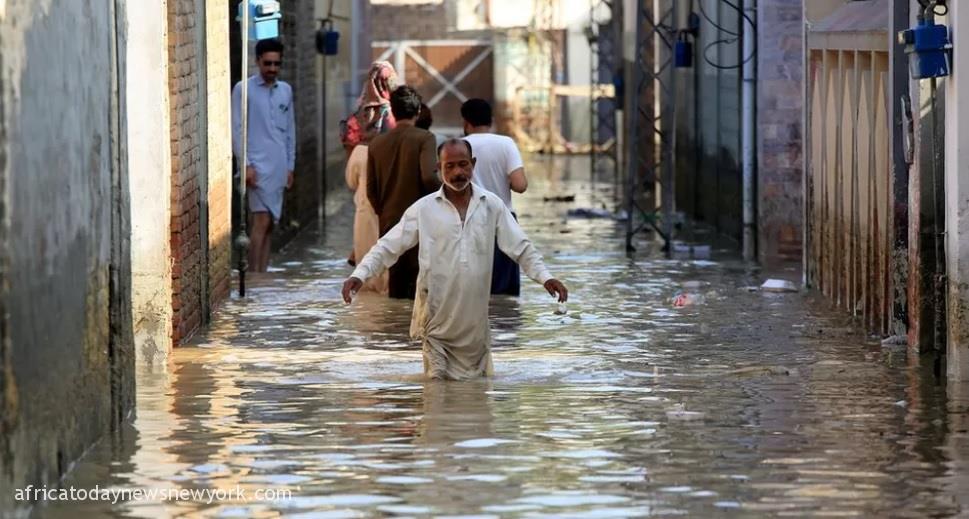Early estimates, according to Pakistan’s planning minister, indicate that the devastating floods that ravaged the nation had cost at least $10 billion (£8.5 billion) in damage.
He made this statement shortly after another government minister said that a third of South Asia’s countries had been underwater.
A separate aid of $1.1 billion from the International Monetary Fund was given to Pakistan on Monday (IMF).
That money is aimed to help the cash-strapped economy avoid defaulting on its debts.
The fund allotted to the disaster-wrecked nation was geared toward helping the debt-ridden economy from defaulting on its commitments.
Africa Today News, New York reports that no fewer than 1,136 people have been killed and over 33 million people, or over 15% of the nation’s population, have been affected by the enormous flood disasters brought on by the catastrophic monsoon rains.
Read Also: Death Toll In Pakistan Flood Soars To 1,000
In addition, the heavy rains have destroyed bridges, crops, residences, and other infrastructure including highways.
‘I think it is going to be huge. So far, [a] very early, preliminary estimate is that it is big, it is higher than $10 billion,” Pakistan’s planning minister Ahsan Iqbal said to Reuters news agency.
The country will experience severe food shortages in the upcoming weeks and months, according to Mr. Iqbal, who also believes that the floods are worse than the ones that ravaged Pakistan in 2010, which were the heaviest in the nation’s history; 2,000 people have been recorded dead as a result of that.
Miftah Ismail, Pakistan’s finance minister, suggested that Pakistan might think about importing vegetables from its bitter rival India to help with the food insecurity.
Sherry Rehman, the nation’s minister of climate change, referred to the situation as a ‘climate-induced humanitarian disaster of epic proportions.’
‘Literally, one-third of Pakistan is underwater right now, which has exceeded every boundary, every norm we’ve seen in the past,’ Ms. Rehman said
Pakistan was in the midst of an economic crisis and had been discussing a loan with the IMF even before the rains.
As its economy suffers with an annual inflation rate of roughly 25%, recent official data revealed that the nation barely has enough foreign currency in reserve to cover around a month’s worth of imports.
Antoinette Sayeh, the IMF’s deputy managing director, said in a statement regarding the $1.1 billion bailout: “Pakistan’s economy has been buffeted by adverse external conditions, due to spillovers from the war in Ukraine, and domestic challenges, including from accommodative policies that resulted in uneven and unbalanced growth.”
The declaration omitted any reference of the flooding.

